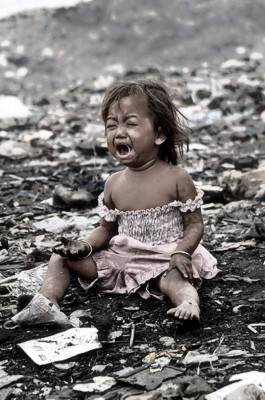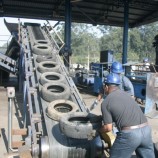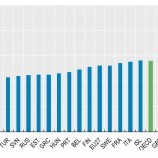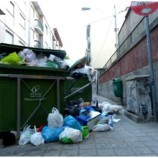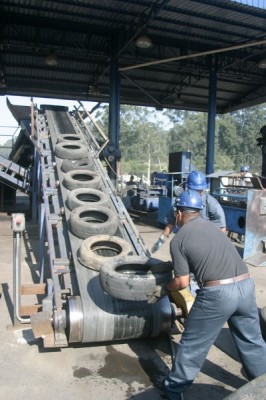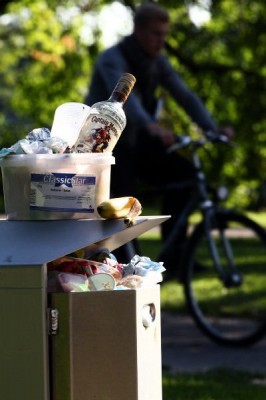Recycling in Brazil: imagine your son in this situation
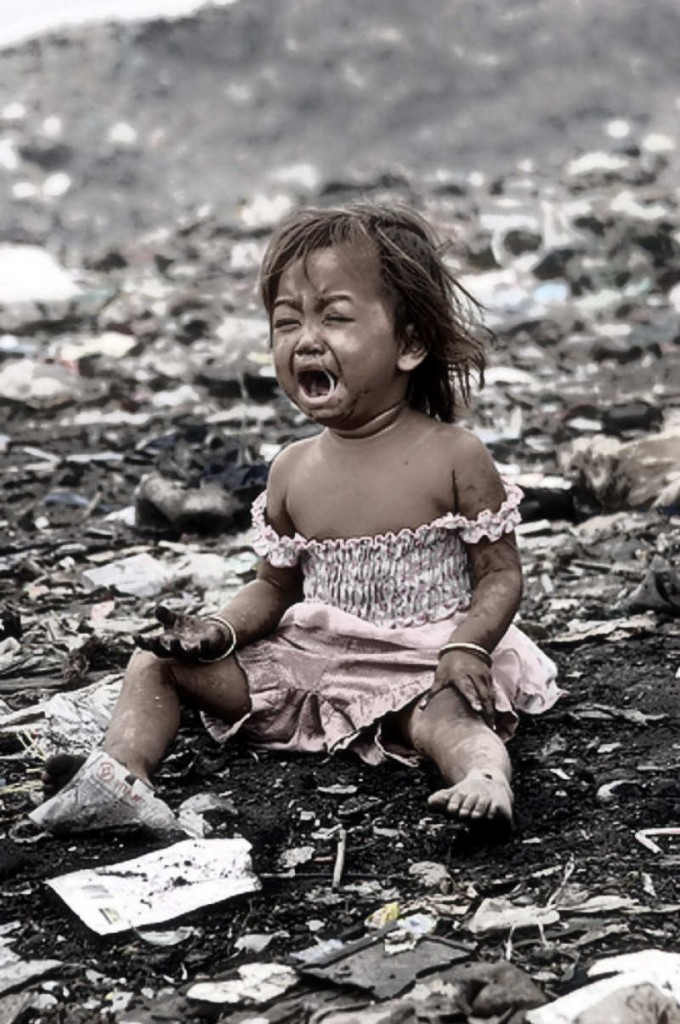
Horrendous, filthy, rank bathroom stalls. Shower booths transformed into dumps for refrigerator carcasses and broken toilets. Doors? How? Cabinets? You must be joking. What is this? This image is not fictional. If only if it were. It can be found near you, in the vast majority of waste recovery facilities operated by thousands of waste pickers. Just take a walk through the streets and alleys of any city. Look around the junk yards, the so called solid remains selection facilities and recycling centers. There you will see without the aid of an acute perception, the eyes of a lynx or the nose of a dog, the jungle life dedicated to Brazil’s environmental protection. Jungle in its cruelest sense of the word, run wild in negligence, carelessness, and disrespect. These are the three ingredients needed to enable the first of the three R’s of Recycle, Reuse and Reduce. This is the reality of Brasília’s waste recovery plants, both for those operated exclusively by waste pickers or with partnering operations in between as well as private companies contracted to oversee equipment usage.
Photography, which according to Drummond is the great retainer of nature, may be incapable of capturing the harsh reality found in these installations, which are more than willing to receive a health surveillance survey and from no less than the public prosecutor’s office. And what can be said about the Fire Department…? These organs need to go out and discover them, follow them around silently, with an open heart and mind. They have to breathe them. The environmentalists, the designers, the ones (ir) responsible for “urban cleaning”, for social policies and for generating employment and income, the ones who care about the natural environment and human beings, could dedicate a spare minute of their existence to contemplate on this important portion of the “not so virtuous cycle” of Brazils recycling efforts.
Sight accompanied with scent would give life to the photography, contributing sociologically for the registry and analysis on the working conditions of professional collectors of recyclable materials. The definition of the profession by the Brazilian Occupation Code faithfully registers their non-condition, their excrescence. But let’s take a look: “the work is carried out by professionals who organize themselves autonomously or in cooperatives. They work for the sale of materials to recycling companies or other cooperatives. The work is carried out in the open air and at varying times of the day. The worker is exposed to climatic variations, to accidental hazards while handling materials, road traffic accidents and often to urban violence. In the cooperatives, work specializations emerge that tend to increase the number of jobs such as: sorters, scrap bundlers and press operators.” As Gabeira would say “What’s going on here, companheiro?”
The workers who perform this extraordinary labor which is to rummage, transport, screen, compact, compress and return to the industrial process the material removed from nature for recycling, deserve more respect. Their recognition as professionals is still limited to speeches and very, and I mean very, distant from their daily life. Financial withdrawal for the work carried out does not compensate the measure of sacrifice undertaken. In the our country’s capital, which has one of the country’s highest cost of living, a male or female collectors’ income can range from USD $ 120 to $ 300 a fortnight. For a country that has demonstrated the ability to circumvent today’s worldwide financial crisis with investments and massive job creation, these numbers are downright shameful. If you’re like Sao Tome and need to see to believe, take a walk down the peripheral streets of your city. They are out there, all over Brazil. Who knows, maybe with more advertising we might come to understand the situation differently. Waste pickers require and deserve a solution to come, but not one so quiet that it does not meet the needs of the current generation that for so long has been struggling for their right to exercise this profession, demonstrating organization and significance for our future.
Related Articles


